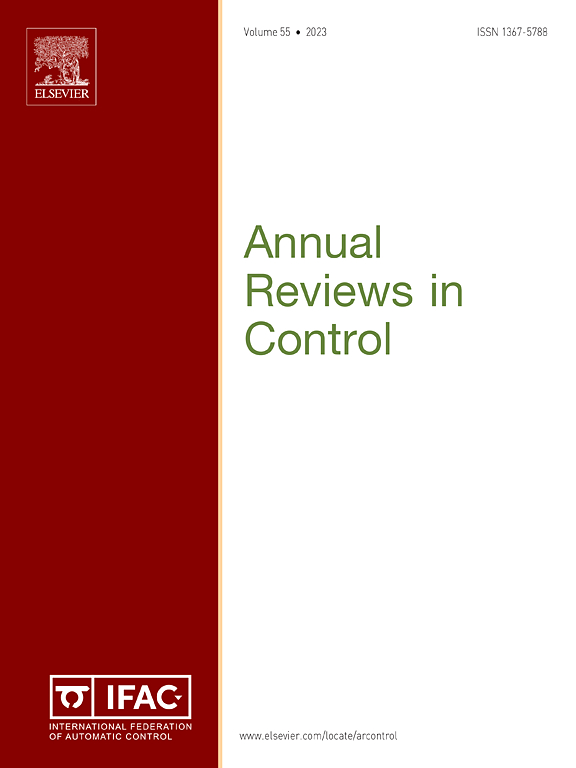一个通过证书合成来验证和控制动态模型的通用框架
IF 10.7
2区 计算机科学
Q1 AUTOMATION & CONTROL SYSTEMS
引用次数: 0
摘要
控制理论的一个新兴分支专注于证书学习,涉及自治或控制模型所需(可能复杂的)系统行为的规范,然后通过基于功能的证明进行分析验证。然而,符合这些复杂要求的控制器的合成通常是一项不平凡的任务,可能会避开最专业的控制工程师。这导致需要能够设计控制器和分析各种详细规格的自动技术。在本文中,我们提供了一个通用的框架来编码系统规范和定义相应的证书,我们提出了一种自动化的方法来形式化地综合控制器和证书。我们的方法有助于控制安全学习的广泛领域,利用神经网络的灵活性来提供候选控制和证书功能,同时使用sat -模理论(SMT)求解器来提供正确性的正式保证。我们通过开发一个原型软件工具来测试我们的框架,并通过对大量不同基准的控制和证书合成来评估其有效性。本文章由计算机程序翻译,如有差异,请以英文原文为准。
A general framework for verification and control of dynamical models via certificate synthesis
An emerging branch of control theory specialises in certificate learning, concerning the specification of a desired (possibly complex) system behaviour for an autonomous or control model, which is then analytically verified by means of a function-based proof. However, the synthesis of controllers abiding by these complex requirements is in general a non-trivial task and may elude the most expert control engineers. This results in a need for automatic techniques that are able to design controllers and to analyse a wide range of elaborate specifications. In this paper, we provide a general framework to encode system specifications and define corresponding certificates, and we present an automated approach to formally synthesise controllers and certificates. Our approach contributes to the broad field of safe learning for control, exploiting the flexibility of neural networks to provide candidate control and certificate functions, whilst using SAT-modulo-theory (SMT)-solvers to offer a formal guarantee of correctness. We test our framework by developing a prototype software tool, and assess its efficacy at verification via control and certificate synthesis over a large and varied suite of benchmarks.
求助全文
通过发布文献求助,成功后即可免费获取论文全文。
去求助
来源期刊

Annual Reviews in Control
工程技术-自动化与控制系统
CiteScore
19.00
自引率
2.10%
发文量
53
审稿时长
36 days
期刊介绍:
The field of Control is changing very fast now with technology-driven “societal grand challenges” and with the deployment of new digital technologies. The aim of Annual Reviews in Control is to provide comprehensive and visionary views of the field of Control, by publishing the following types of review articles:
Survey Article: Review papers on main methodologies or technical advances adding considerable technical value to the state of the art. Note that papers which purely rely on mechanistic searches and lack comprehensive analysis providing a clear contribution to the field will be rejected.
Vision Article: Cutting-edge and emerging topics with visionary perspective on the future of the field or how it will bridge multiple disciplines, and
Tutorial research Article: Fundamental guides for future studies.
 求助内容:
求助内容: 应助结果提醒方式:
应助结果提醒方式:


